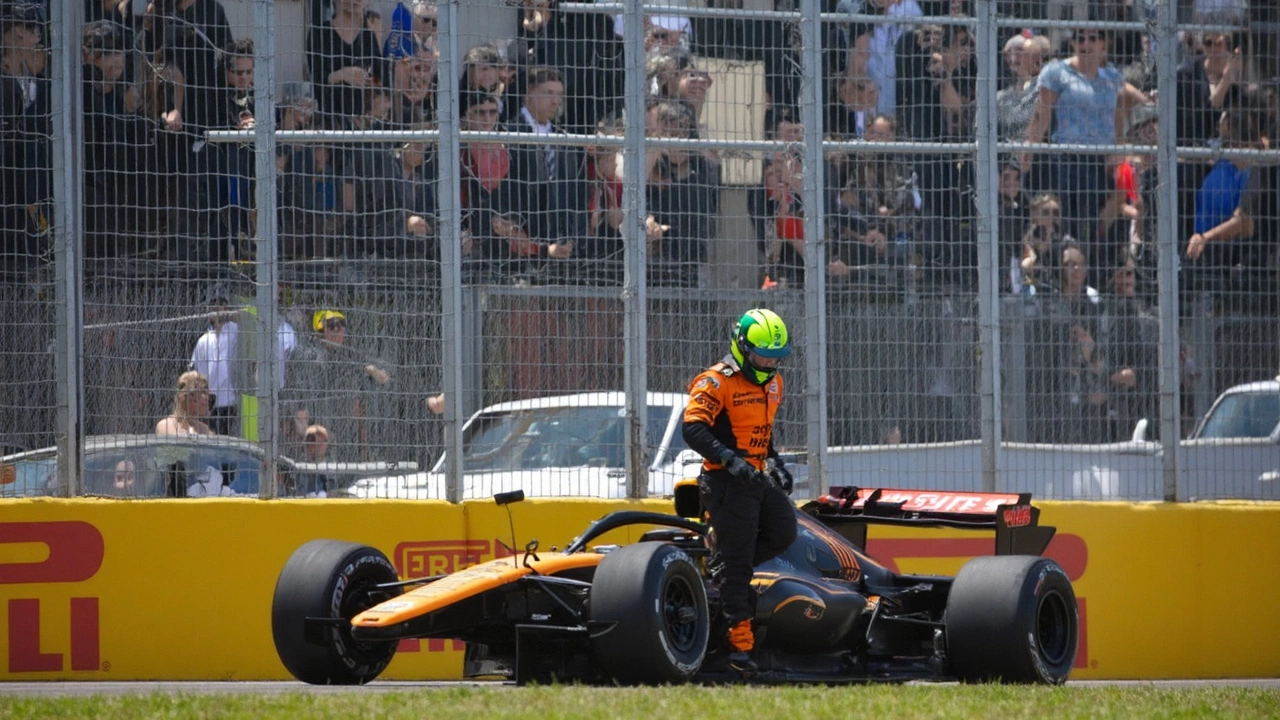Lando Norris’s Canadian GP Crash: Jolyon Palmer Weighs In
The Canadian Grand Prix turned tense for McLaren when Lando Norris, hunting for a strong finish, tangled with teammate Oscar Piastri in a late-race battle for fourth. Jolyon Palmer, no stranger to the pressures of Formula 1, didn’t sugarcoat his thoughts. He tagged Norris’s move as a "critical misjudgment"—one that could have easily reignited old McLaren flashpoints. Instead, what followed on the pit wall and among the drivers was less drama, more maturity, and just enough relief to keep the team’s season from spiraling out of control.
It all played out in those fraught closing laps. Norris, eager to get by Piastri, got a little too ambitious. He dove for an overtake but underestimated the space, slamming into the back of his teammate’s car. That moment could have wrecked McLaren’s weekend completely. But Piastri managed to wrestle his wounded car home in fourth—salvaging valuable points and, unexpectedly, stretching his championship lead over Norris by 22 points.

Comparisons and Consequences: What Makes This Crash Different?
The echoes of past inner-team crashes at McLaren are impossible to ignore. Palmer pointed to the infamous Lewis Hamilton–Jenson Button tangle in Montreal back in 2011, where Hamilton had an edge on the inside before things went wrong. "In this case, Norris never really got his car alongside," Palmer noted, clearly laying responsibility at Lando’s door. The nature of the move—too optimistic, not enough overlap—meant Norris couldn’t protest his innocence. And to his credit, he didn’t really try.
Norris’s post-race reaction was immediate and direct: "I take full blame... I misjudged it. I apologize to my team and Oscar." That’s as unambiguous as it gets in F1. Instead of fanning the flames, Norris owned up. Meanwhile, Piastri brushed off the drama, responding with the kind of calm that helps defuse these flashpoints before they ignite. He made it clear there was no grudge—and said his focus is keeping the team moving forward rather than dwelling on what went wrong.
If you remember the tense air between McLaren drivers years ago—featuring the likes of Fernando Alonso and Lewis Hamilton—you know how quickly things can unravel. McLaren’s near miss in Montreal wasn’t just about points; a double retirement or ugly fallout could have threatened team unity. But Palmer stressed that the threat of a "civil war" was swiftly avoided because both drivers, led by Norris’s admission, refused to play the blame game.
McLaren bosses get a bit of breathing room here. Instead of managing bruised egos, the focus shifts back to an area Palmer flagged as more pressing—the car’s outright speed. Both Piastri and Norris have been struggling with performance, with neither quite delivering the kind of results that would trouble Red Bull or Ferrari most weekends. The Canadian GP drama might have exposed cracks, but for now, those cracks haven’t widened into a rift.
- Norris takes full responsibility, cooling tensions instantly.
- Piastri stays calm and delivers the points, keeping the championship fight alive.
- McLaren avoids the team civil wars of old, focusing on pace rather than politics.
The real story isn’t just a crash—it’s about how a top team manages the risks of having two hungry drivers in contention, balancing rivalry with the bigger picture. The flexibility McLaren showed after Montreal gives them a shot at regaining momentum without months of fallout in the garage.





